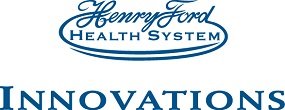Patient Monitoring System Earns Top Prize in Health Tech Challenge

DETROIT – An Israeli-based start-up company is the winner of Henry Ford Health System’s Global Health Tech Challenge for a patient monitoring system that uses predictive analytics to flag real-time physiological changes in the body before, during and after surgery.
ATLASense Biomed will receive up to $75,000 to further research and develop its technology at Henry Ford. The monitoring system has potential widespread implications for improving efficiency at hospitals and the patients they care for.
The Global Health Tech Challenge is made possible through a grant from the William Davidson Foundation and administered by Henry Ford Innovations (HFI), the innovations arm of the health system. It aims to identify advanced health care technology from Israel and co-develop and launch them in the U.S. health care market.
“This technology not only has the potential to monitor a patient during an operation but throughout their entire journey in the hospital and even at home recovering,” says Scott Dulchavsky, M.D., Ph.D., CEO of Henry Ford Innovations and chair of surgery for the health system.
ATLASense was among 30 Israel start-up companies to participate in HFI’s fourth challenge called Technologies for Patient Monitoring in Hospital Settings.
“Our team is very proud of this accomplishment and looks forward to working with Henry Ford Innovations to further develop this technology,” says Tal Or, co-founder and CEO of ATLASense Biomed Ltd. “We believe the patient monitoring system has the potential to become a new standard of care in the United States.”
The ALTASense technology uses a patch sensor placed on the patient’s chest that monitors a host of physiological changes in their body: electrical activity of the heart, nerve and muscle dysfunction, breathing, blood pressure, pulse and skin temperature. With the aid of predictive analysis, the technology can alert staff in real time when immediate intervention is needed.
“There is a huge need to develop real-time physiological monitors that can communicate directly with the electronic medical record,” says Michael Lewis, M.D., Henry Ford’s chair of anesthesiology. “This wealth of data, when processed and analyzed properly, could be used to create significant predictive information about patients.”
###
MEDIA CONTACT: David Olejarz / David.Olejarz@hfhs.org / 313.874.4094
.svg?iar=0&hash=F6049510E33E4E6D8196C26CCC0A64A4)

/hfh-logo-main--white.svg?iar=0&hash=ED491CBFADFB7670FAE94559C98D7798)









